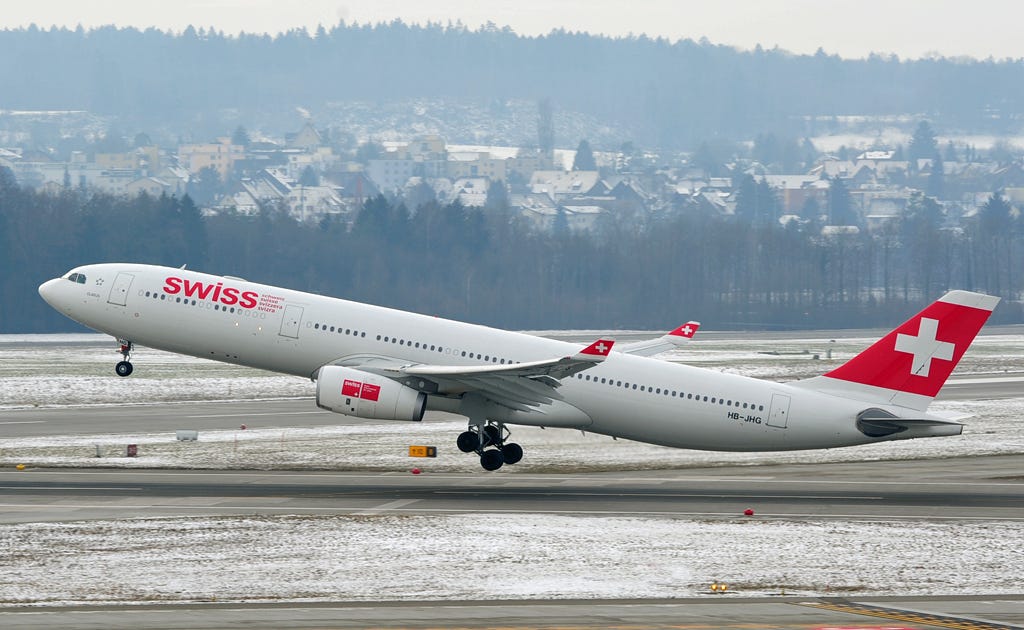Malaysia Airlines cambierà probabilmente nome
Dopo due tragedie in meno di sei mesi, sembra che il management di MH del vettore di bandiera malese deciderà, nelle prossime settimane, se continuare a volare sotto lo stesso nome o tentare di voltare pagina, cambiando nome e logo.
La scelta non sarebbe inusuale: lo stesso fece Korean Air, dopo l'abbattimento del volo KE007, che decise di omettere "Lines" dalla sua livrea, benché legalmente sia, ancora oggi, Korean Air Lines.
Dopo due tragedie in meno di sei mesi, sembra che il management di MH del vettore di bandiera malese deciderà, nelle prossime settimane, se continuare a volare sotto lo stesso nome o tentare di voltare pagina, cambiando nome e logo.
La scelta non sarebbe inusuale: lo stesso fece Korean Air, dopo l'abbattimento del volo KE007, che decise di omettere "Lines" dalla sua livrea, benché legalmente sia, ancora oggi, Korean Air Lines.
Malaysia Airlines in brand overhaul after MH17 and MH370
The beleaguered airline considers a name change in an attempt to repair its reputation after the downing of flight MH17
Malaysia Airlines is likely to change its name as part of a radical overhaul in the wake of the death of 298 passengers in a missile attack on a flight over Ukraine.
The Malaysian flag carrier, majority-owned by the government, will also seek new investors to rebuild its business after two major tragedies within six months.
Work has begun on a strategic review that will restructure the airline’s routes and expand ousourcing to increase profitability.
Sources said additional private investment for the airline could come from rival aviation groups.
At the same time, Malaysia Airlines is also calling for a single global body to monitor threats and decide where civilian aircraft are allowed to fly.
The review process is being led by the Malaysian government. It follows the downing of Flight MH17 over eastern Ukraine 10 days ago and the unexplained disappearance of Flight MH370 in March.
MH370, which was travelling from Kuala Lumpur to Beijing, lost touch with air traffic control on March 8, an hour after take-off. It was carrying 239 passengers and crew.
The wreckage has never been found in spite of a massive international search.
Writing in The Sunday Telegraph, the airline’s commercial director Hugh Dunleavy insists that despite the “tragic loss” of both aircraft, the airline would eventually “emerge stronger”.
Mr Dunleavy adds: “Our majority shareholder, the Malaysian government, has already started a process of assessing the future shape of our business and that process will now be speeded up as a result of MH17.
“There are several options on the table but all involve creating an airline fit for purpose in what is a new era for us, and other airlines.”
Those options are said to include renaming and rebranding the airline, which carries 50,000 passengers a day and employs 20,000 staff.
Although the airline raised 9.9bn Malaysian ringgit (£1.8bn) in 2013, and is said by industry analysts to be well-funded, it is thought external investment could help to return confidence to Malaysia following the recent tragedies.
The exact cause of the MH17 disaster is still under investigation. Mr Dunleavy said that the airline industry needed to work together to ensure that such tragedies could not happen again.
“MH17 was in airspace approved by ICAO [the International Civil Aviation Organisation]. Its flight plan was approved by the Ukrainian authorities, as well as Eurocontrol. Yet still it was brought down, it seems, by a missile.
“This tragedy has taught us that despite following the guidelines and advice set out by the governing bodies, the skies above certain territories are simply not safe,” he writes. “MH17 has shown us that airlines can no longer rely on existing industry bodies for this information.”
In his role as Malaysia Airlines’ most senior commercial officer, he is calling for the industry to form “one body to be the arbiter of where we can fly”.
Mr Dunleavy adds: “Airlines such as ours should be left to focus on the quality of our product in the air, not on the air corridor we fly in, which should be guaranteed as safe passage.”
His call for action follows easyJet’s decision last week to suspend flights to Tel Aviv following advice from European and US aviation regulators after a Palestinian rocket fired from Gaza fell close to the city’s Ben Gurion airport.
The low-cost carrier chose not to fly to Israel, despite other UK airlines, including British Airways, choosing to continue. easyJet resumed flights to Tel Aviv on Friday after regulators lifted their advice.
But the incident reflects concern among the aviation sector about the safety of flying over or close to contested airspace. Mr Dunleavy said that the “airline industry should not be held accountable for factors that are beyond our control”.
http://www.telegraph.co.uk/news/avi...s-in-brand-overhaul-after-MH17-and-MH370.html



